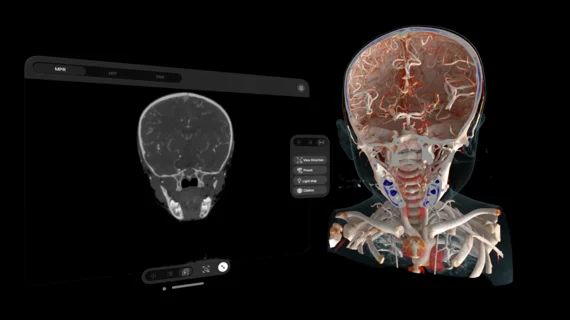Apple Vision Pro app turns imaging scans into interactive holograms
The Apple Vision Pro may be new to the market, but organizations are already finding ways to turn the consumer gadget into a radiology tool.
Siemens Healthineers has launched an app for the Apple Vision Pro that turns medical scans into holograms, which providers can interact with in augmented reality. The Cinematic Reality app takes full advantage of Apple Vision’s spatial computing, the app can be interacted with using hand gestures, empowering users to zoom in on clinical images, in addition to producing holographic models of the human body that can be rotated in 3D.
The app allows for detailed rendering of the human anatomy, including internal organs, as part of an interactive holo-projection. While it may be primarily used as a care planning aid for radiologists and surgeons, it can also serve as an educational tool for students learning to read scans. Additionally, a patient can wear the headset to enhance their understanding of imaging results and any upcoming procedure.
“We see great potential for the technology for clinical as well as educational purposes," Christian Zapf, head of digital and automation at Siemens Healthineers said in a statement.
Cinematic Reality is available at Apple’s digital storefront.
As covered in Health Imaging, other radiology applications designed for the Apple Vision Pro are already being used in a healthcare setting.

